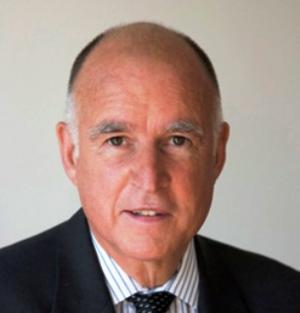Everyone is waiting for the other shoe to drop after last week's marijuana legalization votes in Colorado and Washington. Here's what we could see happen.
At a time like this -- when people are talking about drug policy like never before -- the movement's internet strategy is also more important than ever before. So please support our work with a generous donation today.
And so it begins. Prosecutors in two of Washington's most populous counties have said they are dismissing pending marijuana possession cases in the wake of last Tuesday's victory for I-502.
Boulder County DA Stan Garnett has become the first in Colorado to announce he is no longer prosecuting small-time marijuana possession cases. He said he doubted he could find a jury to convict, anyway.
The marijuana legalization votes in Colorado and Washington have Mexican officials wondering just why they're fighting the drug wars.
Latin American leaders are watching closely as US states begin to move toward marijuana legalization. Now, five of them want the OAS and the UN to talk about it, and what it means for the global prohibition regime.
Washington Gov. Christine Gregoire (D) is meeting with a Justice Department official Tuesday to seek clarity on the federal response to last week's marijuana legalization vote.
California Gov. Jerry Brown (D) called Sunday for the federal government to not interfere in states that have voted to legalize marijuana or medical marijuana.
All eyes may have been on the election last week, but the battles over medical marijuana didn't go away. Here are the highlights from the past few days.
A tweaked out former Oklahoma police chief cops a plea, a Mississippi cop admits to running interference for supposed drug traffickers, and a Louisiana narc goes to prison for stealing guns and money.
In the wake of last week's victories for marijuana legalization in Colorado and Washington, everyone is waiting to see how the federal government will respond. But early indications are that we may be waiting for awhile, and that the federal options are limited.

How will the feds respond to legalization? (justice.gov)
While the legal possession -- and in the case of Colorado, cultivation -- provisions of the respective initiatives will go into effect in a matter of weeks (December 6 in Washington and no later than January 5 in Colorado), officials in both states have about a year to come up with regulations for commercial cultivation, processing, and distribution. That means the federal government also has some time to craft its response, and it sounds like it's going to need it.
So far, the federal response has been muted. The White House has not commented, the Office of National Drug Control Policy has not commented, and the Department of Justice has limited its comments to observing that it will continue to enforce the federal Controlled Substances Act.
"My understanding is that Justice was completely taken aback by this and by the wide margin of passage," said Eric Sterling, former counsel to the House Judiciary Committee and currently the executive director of the
Criminal Justice Policy Foundation. "They believed this would be a repeat of 2010, and they are really kind of astonished because they understand that this is a big thing politically and a complicated problem legally. People are writing memos, thinking about the relationship between federal and state law, doctrines of preemption, and what might be permitted under the UN Single Convention on Narcotic Drugs."
What is clear is that marijuana remains illegal under federal law. In theory an army of DEA agents
could swoop down on every joint-smoker in Washington or pot-grower in Colorado and haul them off to federal court and thence to federal prison. But that would require either a huge shift in Justice Department resources or a huge increase in federal marijuana enforcement funding, or both, and neither seems likely. More likely is selective, exemplary enforcement aimed at commercial operations, said one former White House anti-drug official.
"There will be a mixture of enforcement and silence, and let's not forget that federal law continues to trump state law," said Robert Weiner, former spokesman for the
Office of National Drug Control Policy (
ONDCP). "The Justice Department will decide if and at what point they will enforce the law, that's a prosecutorial decision the department will make."
Weiner pointed to the federal response to medical marijuana dispensaries in California and other states as a guide, noting that the feds don't have to arrest everybody in order to put a chill on the industry.
"Not every clinic in California has been raided, but Justice has successfully made the point that federal law trumps," he said. "They will have to decide where to place their resources, but if violations of federal law become blatant and people are using state laws as an excuse to flaunt federal drug laws, then the feds will have no choice but to come in."
Less clear is what else, exactly, the federal government
can do. While federal drug laws may "trump" state laws, it is not at all certain that they preempt them. Preemption has a precise legal meaning, signifying that federal law supersedes state law and that the conflicting state law is null and void.
"Opponents of these laws would love nothing more than to be able to preempt them, but there is not a viable legal theory to do that," said Alex
Kreit, a constitutional law expert at the Thomas Jefferson School of Law in San Diego who co-authored an
amicus brief on preemption in a now mooted California medical marijuana case. "Under the anti-commandeering principle, the federal government can't force a state to make something illegal. It can provide incentives to do so, but it can't outright force a state to criminalize marijuana."
An example of negative incentives used to force states to buckle under to federal demands is the battle over raising the drinking age in the
1980s and
1990s. In that case, Congress withheld federal highway funds from states that failed to raise the drinking age to 21. Now, all of them have complied.
Like Weiner,
Kreit pointed to the record in California, where the federal government has gone up against the medical marijuana industry for more than 15 years now. The feds never tried to play the preemption card there, he noted.
"They know they can't force a state to criminalize a given behavior, which is why the federal government has never tried to push a preemption argument on these medical marijuana laws," he argued. "The federal government recognizes that's a losing battle. I would be surprised if they filed suit against Colorado or Washington saying their state laws are preempted. It would be purely a political maneuver, because they would know they would lose in court."
The federal government most certainly can enforce the Controlled Substances Act,
Kreit said, but will be unlikely to be able to do so effectively.
"The Supreme Court said in
Raich and in the Oakland Cannabis Buyers Club cases that the federal government has all the power in the world to enforce the Controlled Substances Act,"
Kreit said, "and if they wanted to interfere in that way, they could. They could wait for a retail business or manufacturer to apply for a license, and as soon as they do, they could prosecute them for conspiracy -- they wouldn't even have to wait for them to open -- or they could sue to enjoin them from opening," he explained.
"But you can only stop the dam from bursting for so long,"
Kreit continued. "In California, they were able to stop the dispensaries at the outset by suing
OCBC and other dispensaries, and that was effective in part because there were so few targets, but at a certain point, once you've reached critical mass, the federal government doesn’t have the resources to shut down and prosecute everybody. It's like whack-a-mole. The feds have all the authority they could want to prosecute any dispensary or even any patients, but they haven't been effective in shutting down medical marijuana. They can interfere, but they can't close everybody down."
As with medical marijuana in California, so with legal marijuana in Colorado and Washington,
Kreit said.
"My guess is that if the feds decided to prosecute in Colorado and Washington, it would go similarly," he opined. "At first, they could keep people from opening by going after them, either enjoining or prosecuting them, but that strategy only works so long."
"I think the career people in Justice will seek to block Colorado and Washington from carrying out the state regulatory regime of licensing cultivation and sales," Sterling predicted. "A lower court judge could look at
Raich and conclude that interstate commerce is implicated and that the issue is thus settled, but the states could be serious about vindicating this, especially because of the potential tax revenue and even more so because of the looming fiscal cliff, where the states are looking cuts in federal spending. The states, as defenders of their power, will be very different from Angel
Raich and Diane
Monson in making their arguments to the court. I would not venture to guess how the Supreme Court would decide this when you have a well-argued state's
10th Amendment power being brought in a case like this."
"Enjoining state governments is unlikely to succeed," said Kreit. "Again, the federal government has taken as many different avenues as they can in trying to shut down medical marijuana, and yet, they've never argued that state laws are preempted. They know they're almost certain to lose in court. The federal government can't require states to make conduct illegal."
At ground zero, there is hope that the federal government will cooperate, not complicate things.
"We're in a wait and see mode," said Brian Vicente, executive director of
Sensible Colorado and co-director of the Amendment 64 campaign. "It's our hope that the federal government will work with Colorado to implement this new regulatory structure with adequate safeguards that make them comfortable the law will be followed."
While that may seem unlikely to most observers, there is a "decent chance" that could happen, Vicente said. "Two mainstream states have overturned marijuana prohibition," he said. "The federal government can read the polls as well as we can. I think they realize public opinion has shifted and it may be time to allow different policies to develop at the state level."
The feds have time to come to a reasonable position, said Ethan
Nadelmann, executive director of the
Drug Policy Alliance.
"There is no need for a knee-jerk federal response, since the states are not required to create a regulatory scheme quickly," he said. "And while anti-marijuana forces more or less captured the drug czar's office early in Obama's first term, they're at odds with other people in the White House and the Obama administration whose views may be closer to our own. I think the White House will be the key. It's very likely that the fact that Attorney General Holder said nothing about the initiatives this fall, unlike two years ago, was because of the White House. I don't mean the drug czar's office; I mean the people who operate with respect to national politics and public policy."
Sterling disagreed about who is running drug policy in the Obama administration, but agreed that the feds have the chance to do the right thing.
"Given the large indifference to drugs as an issue by the Obama administration, its studious neglect of the issue, its toleration of an insipid director of
ONDCP, its uncreative appointment of Bush's DEA administrator, it's clear that nobody of any seniority in the Obama White House is given this any attention. Unless Sasha and
Malia come home from school and begin talking about this, it won't be on the presidential agenda, which means it will be driven by career bureaucrats in the DEA and DOJ," he argued.
That's too bad, he suggested, because the issue is an opportunity for bold action.
"They should respond in a vein of realism, which is that this is the future, the future is now," he advised. "They have an opportunity with these two different approaches to work with the states, letting them go forward in some way to see how they work and providing guidance in the establishment of regulations that would let the states do this and ideally minimize the interstate spillover of cultivation and sales."
"As part of that, they should ideally move to rewrite the Controlled Substances Act and begin working in the UN with other countries to revise the Single Convention on Narcotics. Our 100-year-old approach is now being rejected, not simply by the behavior of drug users, but by the voters, many of whom are not drug users," Sterling said. "That would be a way that a wise, forward-thinking, statesman-like public official should respond."
That would indeed be forward-thinking, but is probably more than can be reasonably expected from the Obama White House. Still, the administration has the opportunity to not pick a fight with little political upside, and it has time to decide what to do before the sky falls. Marijuana legalization has already happened in two states, and is an increasingly popular position. The federal government clearly hasn't been in the lead and it's not going to be able to effectively stop it; now, if it's not ready to follow, it can least get out of the way.
back to top
Dear StoptheDrugWar.org supporter:
With marijuana legalization passing in two states, with growing international support for a real debate about prohibition, people are talking about drug policy like never before. And so two of our three latest offers for donating members come from the academic world rather than activist reformer circles: Marijuana Legalization: What Everyone Needs to Know and Drugs, Insecurity and Failed States: The Problems of Prohibition.
This is also a time of continuing outrages in the government's drug war, including the federal campaign against medical marijuana. And so our third new offer is the DVD Lynching Charlie Lynch, telling the story of one of California's most respected and responsible medical marijuana providers, now facing time in federal prison. (Follow the three links above for Drug War Chronicle reviews of each of these works.)
| |  |
| |
Donate $35 or more to StoptheDrugWar.org, and you will be eligible for a complimentary copy of any one of these items. Donate $65 or more and you'll be eligible for any two. Donate $95 or more and you can receive all three. (Each of these items, and each combination along with other available items, can be found in the "membership premiums" section of our online donation form, under the indicated minimum total. Many older items are also still available, as you'll see on the form, some for as little as $15.)
At a time like this -- when people are talking about drug policy like never before -- the movement's internet strategy is also more important than ever before. So please support our work with a generous donation by credit card or PayPal today. You can also donate by mail -- info below.
Lastly, please note that even with a nonprofit, bulk discount, we spend a significant amount to purchase these items and send them to you -- if you can afford to donate more than the minimum, or to supplement your donation with a continuing monthly contribution, I hope you'll consider doing so. If gift items are not important to you, I hope you'll consider sending a donation that's entirely for our work.
| |  |
| |
Donations to our organization can be made online at http://stopthedrugwar.org/donate, or they can be mailed to: DRCNet Foundation (tax-deductible), P.O. Box 18402, Washington, DC 20036; or Drug Reform Coordination Network (non-deductible for lobbying), same address. Contact us for information if you wish to make a donation of stock. (Note that selecting gift items will reduce the amount of your donation that is tax-deductible, by the item's retail value.)
Thank you for standing with us to stop the drug war's cruelties and meet the opportunity this time offers to make a brighter future. As events now show: time, and the truth, are on our side!
Sincerely,
 David Borden, Executive Director
David Borden, Executive Director
StoptheDrugWar.org
Washington, DC
http://stopthedrugwar.org
back to top
Some Washington state prosecutors have begun dismissing pending marijuana possession cases in the wake of last week's vote to legalize marijuana in the state. King County (Seattle) prosecutors have dismissed 175 cases involving adults 21 or over, while Pierce County (Tacoma) prosecutors have dropped about 50 more.On Tuesday, Clark County (Vancouver) prosecutors announced they, too, were dropping possession cases.

King County Prosecuting Attorney Dan Satterberg is no longer prosecuting small-time marijuana possession cases. (kingcounty.gov)
I-502 makes the possession of up to an ounce legal under state law and directs the state to come up with a system of state-owned marijuana stores. The possession provision doesn't come into effect until December 6, but some prosecutors have decided to apply the new law retroactively.
"Although the effective date of I-502 is not until December 6, there is no point in continuing to seek criminal penalties for conduct that will be legal next month," King County Prosecuting Attorney Dan
Satterberg said in a
statement last Friday.
Satterberg has jurisdiction over unincorporated King County, as well as cases on state highways and at the University of Washington. In Seattle itself, which has had a lowest law enforcement priority police in place for nearly a decade, City Attorney Pete Holmes has had a policy of refusing to prosecute simple possession cases.
Satterberg had 40 cases in which criminal charges had already been filed. Those charges will be dismissed. Another 135 cases awaiting charging decisions will be sent back to the arresting police agency.
Pierce County Prosecutor Mark
Lindquist told the
Seattle Times he was dropping "about four dozen" cases where pot possession was the only offense. "The people have spoken through this initiative," said
Lindquist. "And as a practical matter, I don't think you could sell a simple marijuana case to a jury after this initiative passed."
In an interview with the Times,
Satterberg said his office would continue to prosecute marijuana possession above one ounce, but would have "a buffer for those whose scales are less than accurate." His office will also charge felony possession for people holding more than 40 grams, but
Satterberg said his office routinely allows such defendants to plead down to a misdemeanor.
More than 241,000 people have been arrested for small-time pot possession in Washington in the past 25 years, including more than 67,000 in the last five years. That will end as of December 6, but at least some Washington prosecutors aren't waiting.
back to top
The district attorney in Colorado's Boulder County announced Wednesday he will dismiss all pending small-time marijuana and paraphernalia possession cases, saying that given overwhelming support for Amendment 64 in Boulder County he would be hard pressed to find a jury to convict.

Boulder County DA Stan Garnett (bouldercounty.da.gov)
"You've seen an end to mere possession cases in Boulder County under my office," DA Stan Garnett told the University of Colorado student newspaper the
Daily Camera. "It was an ethical decision," Garnett said. "The standard for beginning or continuing criminal prosecution is whether a prosecutor has reasonable belief they can get a unanimous conviction by a jury. Given Amendment 64 passed by a more than 2-to-1 margin (in Boulder County), we concluded that it would be inappropriate for us to continue to prosecute simple possession of marijuana less than an ounce and paraphernalia for those over 21."
While Amendment 64 will not go into effect most likely until sometime in January, Garnett said the high level of support for the measure in the county convinced him to begin dropping cases.
"We were already having trouble sitting a jury anyway," Garnett said. "That overwhelming vote total, that's where we get our juries from."
Boulder police Chief Mark
Beckner told the Daily Camera that his department would now stop issuing tickets or making arrests for mere marijuana possession of less than an ounce and paraphernalia.
"We will not be issuing any summonses for the offenses cited by the Boulder DA,"
Beckner said. "We had already told our officers it was a waste of time to issue summonses for those offenses anyway, given the passage of the amendment. We are in a wait and see mode on how the state will regulate sales and possibly use in public places."
Garnett's stance came the same day Amendment 64 proponents called on other prosecutors, particularly Denver DA Mitch
Morrisey, to follow his lead.
"A strong majority of
Coloradans made it clear that they do not believe adults should be made criminals for possessing small amounts of marijuana," said Mason
Tvert, a proponent of Amendment 64. "Colorado prosecutors can follow the will of the voters by dropping these cases today and announcing they are no longer taking on new ones. We applaud District Attorney Garnett for respecting the will of the voters, and we hope his colleagues across the state will follow his lead,"
Tvert said. "We do not see why District Attorney Morrissey or any other prosecutor would want to continue seeking criminal penalties for conduct that will be legal in the next month or so."
Prosecutors in some Washington counties, where marijuana legalization also passed, have also dropped pending pot possession prosecutions.
back to top
Mexican officials are reacting with a mixture of bemusement and frustration after residents in two US states, Colorado and Washington, voted to legalize marijuana. Some are calling for the legalization of Mexican marijuana exports, while others, including key advisors to incoming President Enrique Pena Nieto, are saying that Mexico will have to "rethink" its drug policies in the wake of the vote.

Incoming Mexican President Pena Nieto will have marijuana on his mind when he meets President Obama later this month (wikimedia)
Mexico has seen as many as 60,000 people killed in the last six years as the government of outgoing President Felipe Calderon declared war on the so-called cartels, which traffic large quantities of Mexican marijuana to the US, as well as methamphetamine, heroin, and cocaine. The Mexican government has grown increasingly frustrated with what it sees as US laxity when it comes to fighting the drug war north of the border, especially with the broad acceptance of medical marijuana in states where it is legal.
And now, two states have moved to okay outright legalization.
In an interview the day after the elections
reported by the Associated Press, key Pena
Nieto advisor Luis
Videgaray, who is heading the new president's transition team, said that his government remains opposed to drug legalization, but that the votes in Colorado and Washington complicated its efforts to prosecute the drug war.
"Obviously we can't handle a product that is illegal in Mexico, trying to stop its transfer to the United States, when in the United States, at least in part of the United States, it now has a different status,"
Videgaray said. "I believe this obliges us to think the relationship in regards to security. This is an unforeseen element. These important modifications change somewhat the rules of the game in the relationship with the United States. I think that we have to carry out a review of our joint policies in regards to drug trafficking and security in general."
Videgraray's remarks come just three weeks before Pena
Nieto is scheduled to meet with President Obama in Washington.
Conversely, Cesar Duarte, governor of the violence-plagued state of Chihuahua, said Wednesday that the legalization votes north of the border offered a "very clear" hint on what Mexico should do: legalize marijuana exports.
"It seems to me that we should move to authorize exports," Duarte told
Reuters in an interview. "We would therefore propose organizing production for export, and with it no longer being illegal, we would have control over a business which today is run by criminals, and which finances criminals."
If the US doesn't want to prosecute the drug war -- as evidenced by the votes in Colorado and Washington -- asked Duarte, why should Mexico?
"We can't go on suffering for the effects of America's vices," he said.
back to top
Five conservative Latin American heads of state said in a joint declaration Monday that the votes by two US states to legalize marijuana would have important ramifications on regional efforts to suppress the drug trade. While the declaration did not say the leaders were considering relaxing their efforts against marijuana, it suggested that the votes in Colorado and Washington could make their enforcement of laws against marijuana more difficult.
Outgoing Mexican President Felipe Calderon was joined by Honduran President Porfirio Lobo, Costa Rican President Laura Chinchilla and Prime Minister Dean Barrow of Belize in Mexico City for a meeting before issuing the declaration. Guatemalan President Oscar Perez Molina, who also signed the declaration, was not present at the meeting because he was overseeing recovery efforts from last Wednesday's deadly earthquake there.
Mexico and Central America have in recent years seen unprecedented levels of prohibition-related violence, with more than 60,000 killed in Mexico during Calderon's tenure and with rising levels of violence in Central America as Mexican enforcement efforts push the so-called cartels into the isthmus.
In addition to several paragraphs of boilerplate language reiterating their country's continuing commitment to fighting criminal drug trafficking organizations, the declaration also "underlines that it is necessary to deeply analyze the social, political, and public health implications for our nations of the processes in action at the state and local level of some countries of our continent to permit the production, consumption, and legal distribution of marijuana, which constitutes a paradigmatic change in respect to the current international regime on the part of such entities."
The declaration asks the secretary general of the Organization of American States, who was mandated at the Summit of the Americas in April with completing a hemispheric study of drugs, "to incorporate an analysis of the impact of the new policies referred to [above] on our countries." It also calls on the UN General Assembly to hold a special session on drug policy no later than 2015.
The Mexico City declaration comes just days after a key advisor to incoming Mexican President Enrique Pena Nieto questioned how Mexico will enforce marijuana prohibition there when it is legal in some US states. The Obama administration has yet to formally respond to the decision by voters in Colorado and Washington to legalize marijuana.
Last Tuesday's legalization votes are reverberating not just across the country, but across the hemisphere.
back to top
Gov. Chris Gregoire (D) met Tuesday with Deputy Attorney General James Cole to discuss her state's passage last week of an initiative that legalizes and taxes the sale of marijuana for adults 21 and over. Federal law continues to consider marijuana possession, cultivation, and distribution to be criminal offenses.

Gov. Christine Gregoire (governor.wa.gov)
spokesman Cory Curtis told the
Associated Press Monday that
Gregoire had added the meeting to a previously scheduled trip to Washington, DC, to seek clarity from the Justice Department.
"We want direction from them," said Curtis. "Our goal is to respect the will of the voters, but give us some clarity."
They didn't get it Tuesday.
Gregoire told the
Associated Press the Justice Department had yet to make a decision on whether it would move to block the laws in Washington and Colorado. They needed to make a decision "sooner rather than later," she said.
"I told them, 'Make no mistake, that absent an injunction of some sort, it's our intent to implement decriminalization,'"
Gregoire said. "I don't want to spend a lot of money implementing this if you are going to attempt to block it."
Under I-502, possession of up to an ounce of marijuana is legal beginning December 6, but the state has a year to come up with rules for a state-licensed cultivation, processing, and distribution scheme. Home grows remain illegal, except for medical marijuana patients.
Colorado also passed a legalization measure last week, Amendment 80. The state governor and attorney general spoke by phone with Attorney General Eric Holder last Friday, but got no clear indications of what the Justice Department will do.
Colorado also passed a measure legalizing the drug. Colorado's governor and attorney general spoke by phone Friday with US Attorney General Eric Holder, with no signal whether the US Justice Department would sue to block the marijuana measure.
Possession of up to an ounce and cultivation of up to six plants will be legal in Colorado by January 5 at the latest. That's the last day for the governor to add the amendment to the state constitution. Colorado legislators have about a year to write rules for state-regulated commercial cultivation, processing, and sales.
In both states, state officials worry that the federal government will sue to block them from implementing regulations.
back to top
Responding to last Tuesday's votes to legalize marijuana in Colorado and Washington, California Gov. Jerry Brown (D) said Sunday the federal government should respect the states' rights to decide how to regulate marijuana. His remarks came on during an interview on CNN's "State of the Union" Sunday morning.

Jerry Brown (gov.ca.gov)
"It's time for the Justice Department to recognize the sovereignty of the states," Brown said in response to a question from host Candy Crowley. "California has a medicinal marijuana law, other states have passed some other measures. We have a laboratory of democracy. We don't always agree with all states. Some states have capital punishment, some states don't. Some now have legalized marijuana -- small amounts for recreational use -- many states have legalized medicinal marijuana. I believe the president and the Department of Justice ought to respect the will of these separate states."
Brown said that even if marijuana remains illegal under federal law, Washington should let the states experiment with other approaches.
"I think the federal law can maintain, but it shouldn't try to nullify reasonable state measures," he said. "I'm not saying the state can do anything they want, but the measures that have been adopted so far have been after vigorous debate. In fact, there's been a marijuana legalization [initiative] in California and it was rejected. It's been rejected in other states. So we are capable of self-government. We don't need some federal gendarme to come in and tell us what to."
If the Obama administration is about to come down on Colorado and Washington, it should think again, said Brown.
"I believe comity toward the states, that's a decent respect, ought to govern the policy and that means change the policy now," the veteran politician said.
Still, Brown didn't sound especially eager to see marijuana legalized in his state.
"I'm not prepared to bring that up," he said in response to a question from Crowley. "We already have a fair amount of marijuana use in the guise of medical marijuana and there's abuses in that field. And as governor, I review paroles for those sentenced for murder and I have to review the paroles and I review hundreds of them. And so many of them start with drugs, with marijuana, with alcohol, when they're 12, they're 15," he said. "So it's dangerous. And people should not in any way take lightly the power of chemicals, whether it be cannabis or something stronger to affect the human mind in a way that really makes desperate people far more desperate."
back to top
All eyes may have been on the election last week, but the battles over medical marijuana didn't go away. Here are the highlights from the past few days. Let's get to it:
Arizona
Last Friday,
state officials reported that 24 doctors were responsible for 75% of patient certifications in the state. The Arizona Department of Health Services said 475 doctors certified nearly 29,000 patients in that period, but that only a couple of dozen doctors were responsible for the vast majority of recommendations, raising questions about whether they were acting in patients' best interests. "A physician that is writing 1,000 to 1,500 certifications each year is not acting in his patients' best interests," said Health Services Director Will Humble, adding that he suspects such doctors are more likely to cut corners or be in it for the money.
California
Last Monday,
the Corte Madera city council voted to continue its ban on new dispensaries. The council renewed the moratorium, cited the current conflict between state and federal laws. But an existing dispensary, Marin Holistic Solutions, will be allowed to continue to operate until at least July 2014, when its business license expires.
Last Tuesday,
three Northern California communities voted to impose or maintain restrictions on medical marijuana production. In the Humboldt County town of Arcata, 69% of voters ensured easy passage of a utility tax aimed at households growing marijuana indoors. In the
Siskiyou County town of
Dunsmuir, medical marijuana advocates' attempt to roll back broad restrictions placed on medical marijuana grows last year failed with 47% of the vote. In Palo Alto, meanwhile, an attempt to overturn a ban on medical marijuana dispensaries and allow up to three of them was defeated by 62% of voters.
Also last Tuesday,
Long Beach police continued their raids on dispensaries. Working with county and state authorities, Long Beach cops have hit seven dispensaries in the past few days, including two last Tuesday and one the following day. At least 25 people have been arrested and an unknown quantity of cash and medicine seized. The enforcement is a joint effort by the Long Beach Police Department, the California Franchise Tax Board and the Los Angeles County District Attorney's Office. More raids are likely unless the remaining dispensaries in the city shut down on their own, officials said.
Last Wednesday,
three San Francisco supervisors called on President Obama to defend medical marijuana. "We want the president to keep the commitment he made to stop the federal government's attacks on medical marijuana," wrote supervisors Christina
Olague, David Campos and Scott Wiener. Obama is in San Francisco for a fundraiser. "We call on all citizens who support the use of medical cannabis to raise their voices with ours in telling President Obama to honor our laws for safe access," the supervisors wrote.
On Tuesday, the
La Mesa city council voted to put a dispensary initiative on the 2014 ballot. The move came after more than 5,000 registered voters signed petitions seeking to allow dispensaries to operate in the city. The petition asks for an amendment to the city’s municipal code allowing the “compassionate use dispensaries” in specific zones in the city, to be regulated by the Community Development Department. The measure would also mean an extra 2 ½ percent sales tax on cannabis-based products sold in the city.
Maine
Last Friday,
the head of the state's medical marijuana program was fired. John
Thiele, who worked in the Department of Health and Human Services, broke the news at a Medical Marijuana Caregivers of Maine event. Medical marijuana community sources said
Thiele was fired because he had become "too friendly with patients and caregivers," but a state representative said he was let go because "he was acting more as a social worker than a regulator."
New Mexico
Last Wednesday,
the Medical Cannabis Advisory Board recommended keeping PTSD as a qualifying condition. After three hours of debate, the board voted unanimously to keep the disorder on its list of conditions for which medical marijuana can be recommended. An Albuquerque psychiatrist had challenged its inclusion, citing a lack of peer-reviewed studies, but he couldn't manage to sway the board, which also heard from numerous people who said they had benefited from its use.
Oregon
Last Wednesday,
federal prosecutors moved to seize High Hopes Farm, a medical marijuana cultivation operation run by activist James Bowman. They are also going after two other properties where marijuana was cultivated. Authorities found more than 800 plants and 400 pounds of dried marijuana at his farm when they raided it earlier this year, but Bowman has claimed that his grow his legal under the Oregon Medical Marijuana Program.
back to top
A tweaked out former Oklahoma police chief cops a plea, a Mississippi cop admits to running interference for supposed drug traffickers, and a Louisiana narc goes to prison for stealing guns and money. Let's get to it:
In Jackson, Mississippi,
a former Jackson police officer pleaded guilty last Wednesday to charges he accepted bribes to protect drug shipments. Anthony Payne is one of three officers charged in the case; the other two have already pleaded guilty. They made the fatal error of mistaking an FBI undercover agent for a drug dealer and fell for his sting. Payne pleaded guilty to one count of bribery and faces up to 10 years in prison when sentenced in January.
In Valley Brook, Oklahoma, the former Valley Brook police chief pleaded guilty last Friday to meth possession. Former Chief Melvin Fisher Jr. was arrested in September 2011 when police found cocaine and marijuana in his car during a traffic stop. He was originally charged with drug trafficking, possession of a controlled drug with intent to distribute cocaine, possession of a controlled drug with intent to distribute marijuana and possession of drug paraphernalia, but ended up copping to the single count of meth possession. He was given a 10-year suspended sentence.
In Baton Rouge, Louisiana, a former Baton Rouge narcotics officer was sentenced last Friday to two years in state prison for stealing three shotguns and more than $27,000 in cash that was to be used as evidence in drug cases. Michael Thompson, 29, must also repay the stolen cash. He copped to one count of felony theft for repeated thefts between September 2010 and April 2011.The thefts were discovered when an upcoming narcotics case was being prepared for trial and investigators noticed money to be used as evidence was missing. Thompson was the narcotics officer assigned to that case. Prosecutors said some drug cases have had to be dismissed because the evidence was missing. Thompson said he was strung out on pain pills when he committed the thefts.
back to top



 David Borden, Executive Director
David Borden, Executive Director






